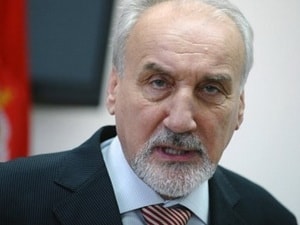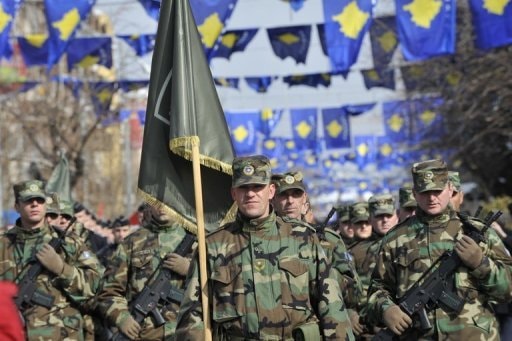“Kosovo rebels once sold prisoners' organs”
Serbia said on September 10 it was holding a former rebel witness in Kosovo accused of participating in cutting out the heart of a Serbian prisoner to sell on the black market for organs during the Kosovo conflict in the 1990s.
“We have a witness who will testify about this, which took place in northern Albania, when the organs of kidnapped Serbs were removed and sold during the 1998-1999 conflict in Kosovo,” Serbian war crimes prosecutor Vladimir Vukcevic told AFP.

Serbian prosecutor Vladimir Vukcevic (Source: AFP)
“He described removing the heart of a Serbian prisoner at a location near (the northern Albanian town) Kukes in the late 1990s,” and transporting the organs to Rinas airport near the capital Tirana.
It is unclear whether the prisoner was dead or alive when the surgery took place, and the prosecutor said he would not provide further details. Vukcevic said the witness told him about the surgery and organ harvesting “in great detail.” Vukcevic did not identify the witness, saying only that he was a former member of the Kosovo Liberation Army (KLA), an armed group that has fought against Serbia’s central government and sought Kosovo’s independence.
The European Union (EU) is also investigating the case. Council of Europe investigator Dick Marty wrote in a 2010 report that senior KLA commanders, including Kosovo's current prime minister, Hashim Thaci, were involved in organized crime, including human organ trafficking.
The organ trafficking ring during and after the conflict with Serbian forces had close ties to Thaci, according to Marty. The report said the organs were removed from prisoners, many of them Serbs, and smuggled to Albania by the KLA.
Thaci, his government and the Albanian side have denied the allegations and condemned Marty's report. “We have been investigating and verifying his claims for more than a year and we believe that the information provided by this witness is true,” Vukcevic said.
Following Marty’s report, the EU asked US prosecutor John Clint Williamson to conduct an investigation. Vukcevic said he hoped “the testimony of this witness will be helpful to Williamson’s investigation.”
The wartime organ trafficking case is believed to be linked to the Medicus case, another organ trafficking case at a hospital in Kosovo’s capital, Pristina. Seven people, mostly doctors, have been put on trial before an EU-backed tribunal in Kosovo on charges of illegal organ transplants at Medicus.
The case came to light in 2008 after police opened an investigation into a young Turkish man who collapsed at Pristina airport after donating a kidney to an Israeli man. In his report, Marty said there were “credible indications” that organ trafficking in wartime Kosovo was “closely linked” to the Medicus case.
Allegations of organ harvesting from prisoners by the KLA were first made public in April 2009 in a book by former UN war crimes prosecutor Carla Del Ponte.
Hundreds of victims, mostly Serbs, were kidnapped in Kosovo in the final stages of the war and held in concentration camps along the border with Albania, she said, citing unnamed UN officials and journalists.
Members of Kosovo security forces (Source: AFP)
The allegations were first investigated in March 2004 by a forensic team from the United Nations Mission in Kosovo (UNMIK), which “found no conclusive evidence” of the allegations, according to a confidential report obtained by AFP in 2008.
But Jose-Pablo Baraybar, former head of UNMIK's Forensic and Missing Persons Office, who headed the group in 2004, told AFP the case would open new investigations and he believed organ trafficking was "very likely" to have occurred.
Kosovo will be recognised by the West as fully sovereign on September 10 under a decision by the International Coordination Group that has overseen the territory since it unilaterally seceded from Serbia in 2008.
Belgrade, as well as many countries including Russia, have angrily denied Kosovo's independence. Currently, this territory Kosovo has been recognized by about 90 countries, including the US and most EU members./.
According to (Vietnam+) - NT






